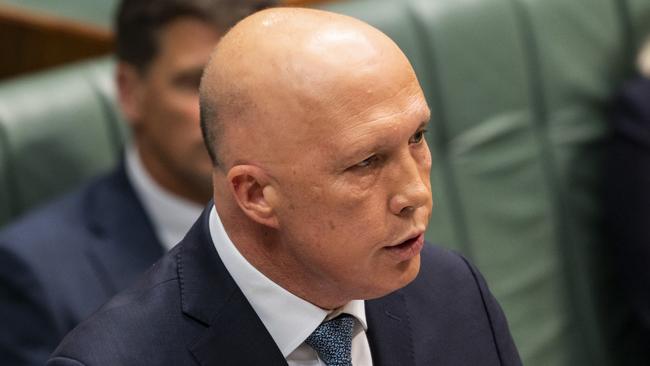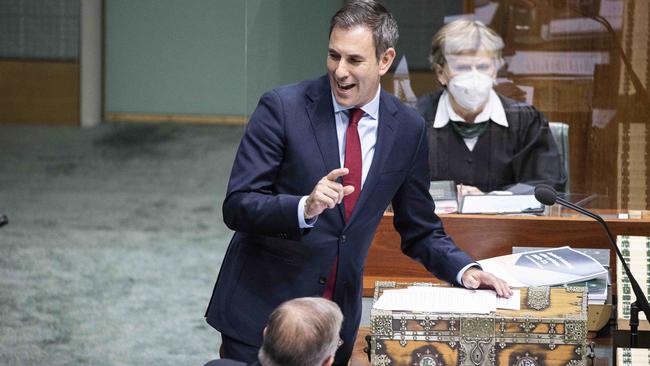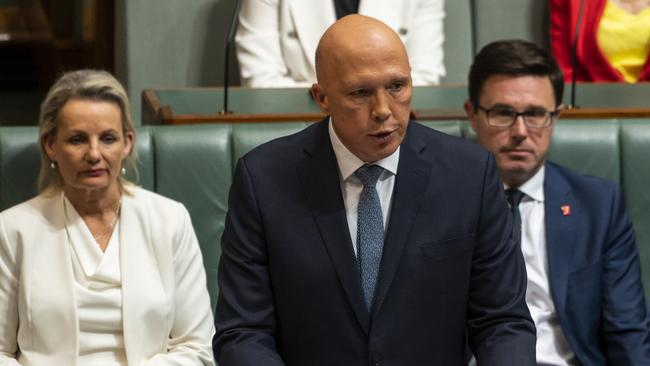
The art of a budget is to highlight the giveaways and bury the decisions that might prompt trouble. On that front, Treasurer Jim Chalmers did a pretty good job.
But as the days pass, a range of important items are being uncovered by analysts from the blizzard of measures announced on Tuesday.
As with profit results at big companies, there are the expected items which the budget confirms and then there is the “guidance” which can be just as important.
You’ve probably heard the top-line budget items but, for investors, it should be useful to just quickly recap the implications of the headlines and then we can look under the hood at some of the very interesting material bubbling beneath the surface.
Budget Forecasts: The tradition among all governments is to be too optimistic forecasting GDP growth and inflation while at the same time being unduly pessimistic about commodity prices. For investors it would be best to ignore all Treasury forecasts which have been very wrong, very often. After a post-budget annualised inflation reading of more than 7 per cent, it looks like the Treasury tradition is alive and well.

Personal Tax: The government made no reference to speculation it will dump the planned personal tax cuts inherited from the Morrison administration. There is another budget due in May 2023. Stand by for the strong chance those tax cuts may still be axed or amended so that middle-income cuts go ahead but-top income tax cuts do not.
Super: There were no changes to superannuation settings; no changes to “caps” of any description (not even capping the unlimited amount an individual can have in the super system). What can we say? It’s an “all clear” signal for another six months.
Housing: In the budget reply this week, Opposition leader Peter Dutton called for a re-examination of using super for home purchases while sharply criticising the budget’s high-profile “housing accord”. The Opposition’s plan, where a person could use up $50,000 of their super money to buy a house, will now become a distinctive feature of Coalition policy. As for the budget’s plan to get big super involved in home building – there is no agreement, no documentation and little to justify tagging this measure as an “accord”. Rather it is a hugely ambitious proposal to somehow combine big super, state governments and investment banks into building new homes in a way that everyone wins. It will be a very long wait to see if this has genuine prospects.

Retiree Income: If you are on a pension (or part pension) you will be delighted to hear that the deeming rate will continue on current setting until June 2024. The assumed rate of return for pension access remains with a starting rate of 0.25 per cent – while the official cash rate is expected to move closer to 3 per cent in the coming days. Why so low? It was an election promise. On top of that the income threshold for the Commonwealth Seniors Health Card jumps from $61,284 to $90,000. Meanwhile, if you are funding your own retirement income, you will be more interested in the “drawdown” rates, or the amount that must be used from super for retiree income payments each year. Here, the news is not quite so good. The 50 per cent discount, which has been in place since the pandemic took hold, looks likely to terminate on June 30 this year – it’s back to normal rates from here on because, ahem, the investment markets have returned to “normal”.
Now, those changes outlined so far are the more obvious developments in this week’s budget, but the material you only get from digging deep tells us more about what might be coming next.
Here’s the items bubbling under you need to know:
Franked dividend clampdown
They just won’t leave this issue alone. In a measure which was not leaked and did not even mention the highly sensitive issue of franked dividend returns to retiree shareholders, the government made its sharpest move yet.
With no consultation, it moved to immediately close down the fashion for “off market” share buybacks which has suited listed companies and shareholders very well in recent years. The measure will raise $200m a year and as Macquarie Bank noted, there will be franking credits “which are likely now to be trapped”. Coupled with this is a separate plan to stop companies raising money and distributing franked dividends at the same time. This is a new move on the franked dividend system – the question is how far will it go?
Tax-free super expansion green light
The Treasurer did not “freeze” the indexation of tax-free super: As a result, the amount you will be able to keep in super funding a tax-free retirement is going to rise from $1.7m to $1.9m on July 1. There is still a chance the Treasurer may freeze the indexing in the May budget. If he does, that would be clumsy and twice as much trouble as it would have been this week. Similarly, though the Treasurer made no move to put a limit on the amount an individual can have in the super system, industry stakeholders are lobbying to introduce a “cap” of $5m. Such lobbying efforts are an open invitation for the Treasurer to pounce whenever he wants.
No regulation reprieve for SMSFs
If you are one of more than one million investors who run their own self-managed super fund you are probably all too aware that SMSFs have the same regulator and police force in the shape of the Australian Taxation Office. The two functions should be entirely separate but they remain combined. Even so, the auditors of SMSFs have been behaving badly. A dozen SMSF auditors were deregistered by ASIC last year for breaking their own rules. The former Morrison government, in its 2018 budget, had moved to make audits required only every three years for SMSFs. However, with a run of rogue auditors in the sector, the Morrison plan always looked to be in trouble. This budget axed that plan – it will remain an annual audit.
Crunch coming for some high-paying income funds
You know those promotions you see for a fund you never heard of paying a “deposit rate” which is much more than any major bank? It could be a Managed Investment Scheme. The MIS legal model used widely in cash and property products has been a problem for many years, going back to the disasters of agricultural schemes which came to grief during the global financial crisis. The government is launching a review of Managed Investment Schemes which will cut across all related schemes, even extending as far as Exchange Traded Funds. Who knows where this will lead? But investors in MIS schemes can fall into a “regulatory gap” when things go wrong. A clean-up of this corner of the market would be very welcome.




If anyone this week tells you there was “nothing in the budget”, don’t listen to them. There was a mountain of material highly relevant to all investors at every level.